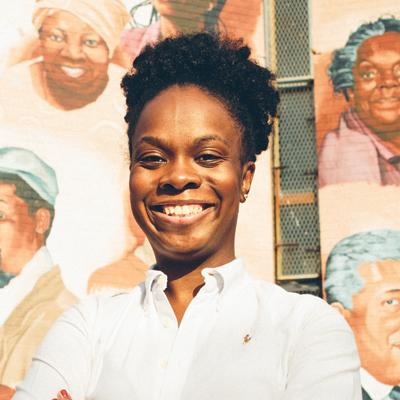The Millennial Revolution: Diversity Isn’t Just a Nice Idea
It’s an expectation
I was asked to write a piece on how millennials feel about race and what that means for Philadelphia. The truth is, I’m reluctant to speak representatively about race for any group—millennials, black people, women. Anyone who’s tried to do this fails before even starting, so bear in mind that this is my story, not “Being Black in Philly.”
When I was in the fifth grade, I took a liking to No Doubt. I played the band’s tour de force ode to heartbreak, “Don’t Speak,” in the car for my dad, a man who once toyed with the idea of substituting the letter X for his last name. My dad and I have always shared music, but by the time we got to the chorus, he’d had his fill.
“You like this?” he said with a chuckle.
“You don’t like it?”
“We didn’t listen to stuff like this when I was coming up. This was white people’s music.”
This moment, like others that occurred as I was growing up, reminded me how much things change from one generation to the next. It would have been an exceptional thing for my parents—who were both born and raised in Philly—or their friends to listen to “white people’s music,” because they didn’t have non-black friends who could introduce it to them.
Me? They sent me to prep school.
Unlike me, they didn’t make Asian-American friends during summer break, and they didn’t visit white folks’ houses for dinner over the weekend. They certainly weren’t attending any bar or bat mitzvahs, or beings guests at a quinceañera. My parents, like boomers of all races, grew up in a racial silo; their worlds only integrated once they reached college and started their careers.
The story was the same for many black baby boomers in cities across the country: Successful professionals of color took advantage of opportunities outside of their once-vibrant working-class neighborhoods, and wanted to provide their children the best education. Suddenly, there were black and brown faces at predominantly white schools.
Millennials first encountered other races and cultures as children. We are the most ethnically and racially diverse generation in the nation’s history. The Pew Research Center recently found that 59.8 percent of people ages 13 to 29 are white—“a record low.”
But my parents’ decision to enroll me in the pedigreed Main Line prep culture wasn’t one they took lightly. I was the only black kid in my class at my Catholic Montessori school; I’d come home on St. Patrick’s Day wanting to know why I wasn’t Irish. I got questions from my classmates about my hair that neither I nor my white teacher knew how to answer. Considering their own experiences, my parents weren’t always sure how to prepare me for mine.
Since grade school, they have repeated the mantra that I “have to be twice as good to get half as much.” It’s an infamous refrain for ambitious parents of color rearing ambitious children of color; it warns of the pitfalls of racism that are sure to come no matter how integrated their social circles, how impressive their résumés, how perfect their diction.
Millennials acknowledge racial differences, too, but we value that diversity. We were exposed to various people and cultures at earlier ages, so for us, diversity is a quality-of-life issue. It adds culture and creativity to a city, and makes it more modern and global.
While Philadelphia boasts a culturally and ethnically diverse population, that diversity is underutilized. Residents tuck themselves away in self-segregated neighborhoods; despite neighborhood turnover, we by and large live amongst our own groups. It isn’t the black-and-white Philly my parents were raised in, but it continues the city’s tradition of racial separatism.
Without an interest in capitalizing on the diversity of its population, the city will lose an opportunity to attract and retain fresh millennial talent. If the high value our generation places on diversity can be met by the city in the years to come, then the city—and all its residents—will be in good hands.
>>Click here for more thoughts on the millennial revolution



